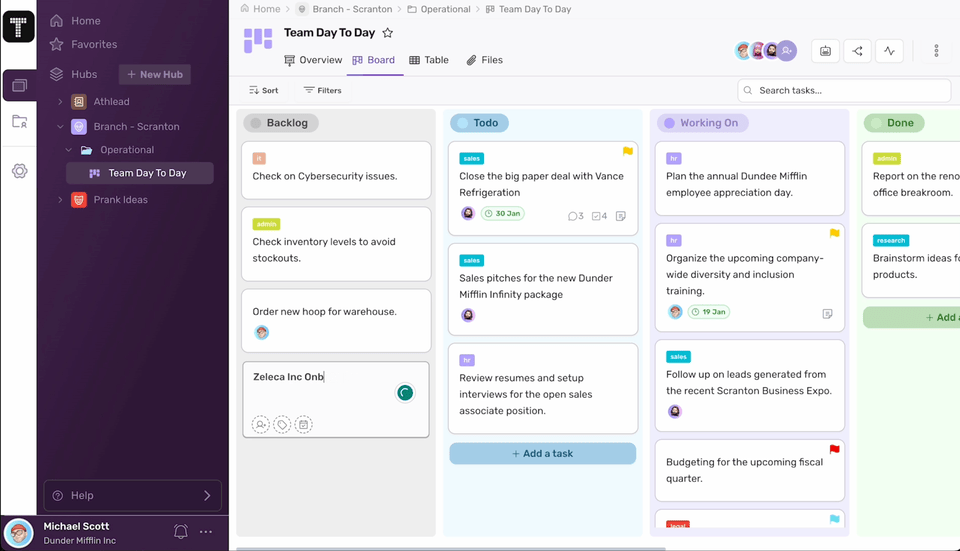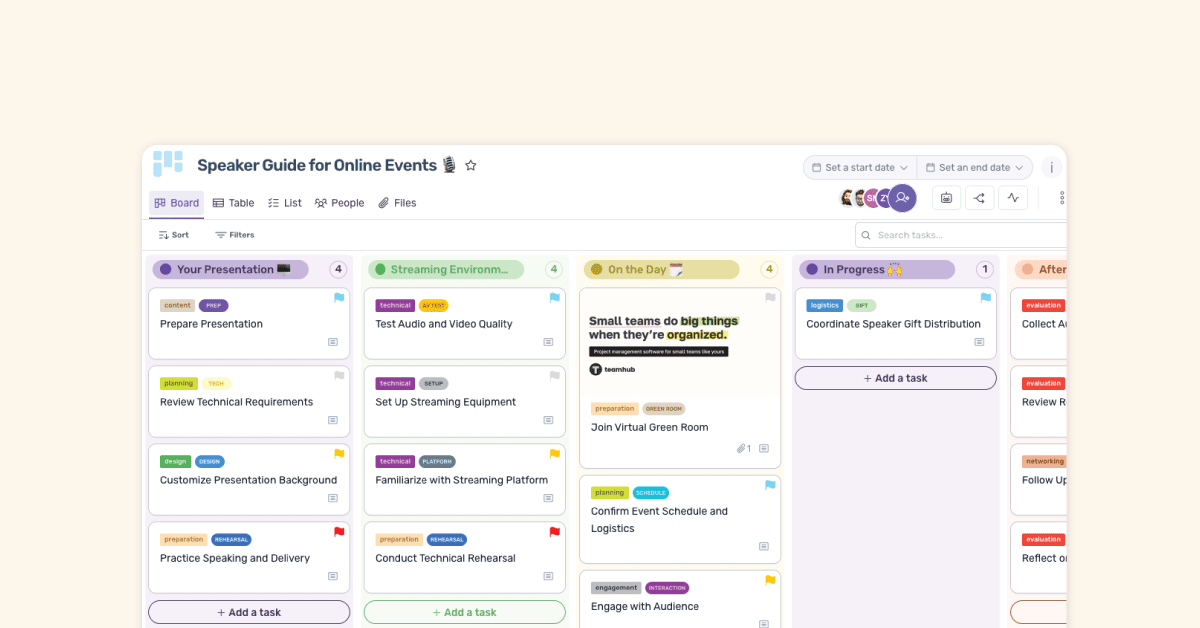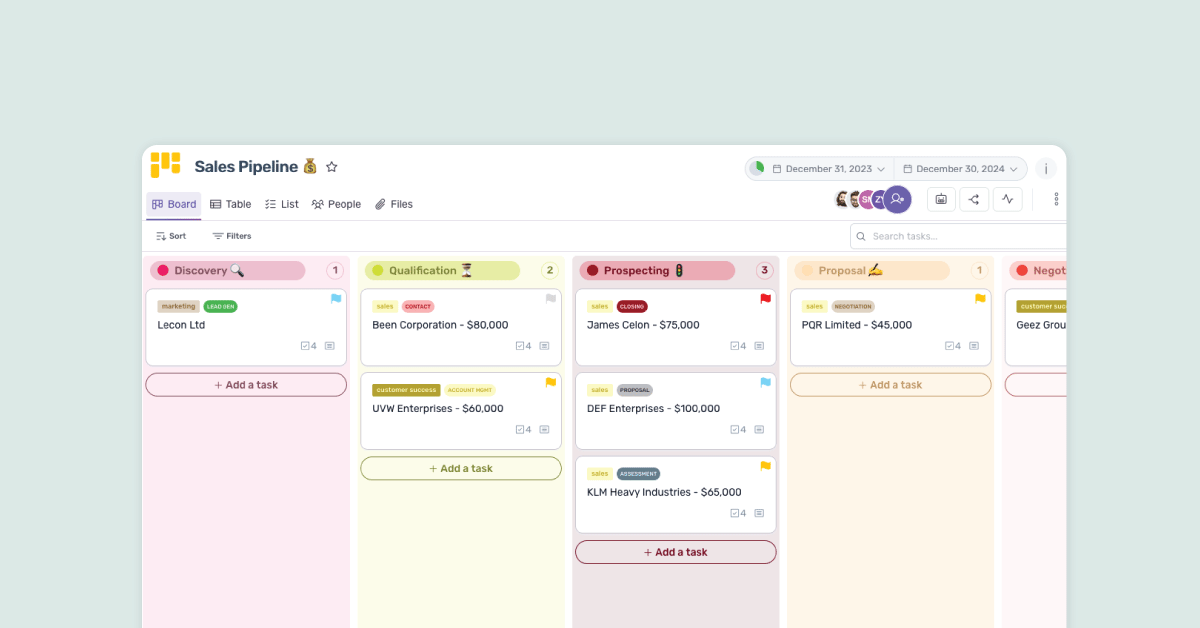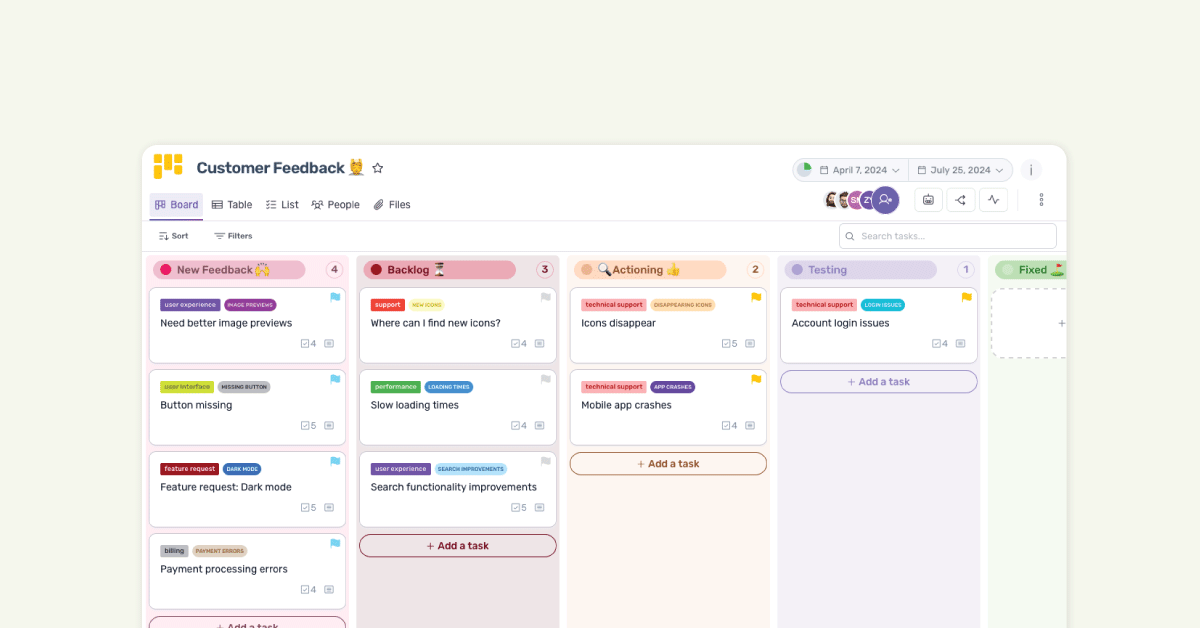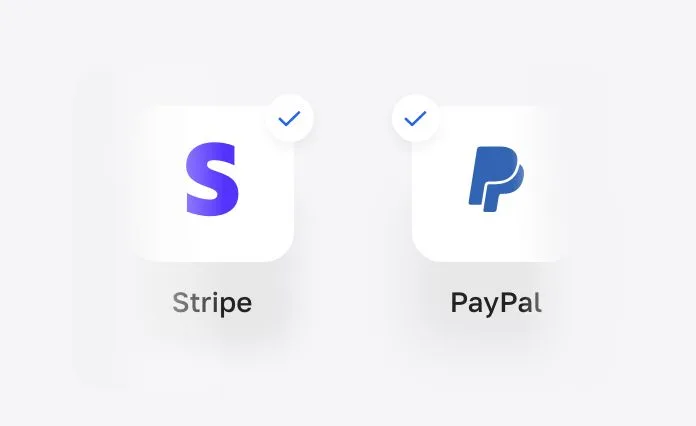Project management plays a crucial role in ensuring the successful execution of tasks and achieving organizational goals. This is especially true in the financial services industry, where precise planning, efficient resource allocation, and effective collaboration are essential. To streamline these processes, financial institutions are increasingly turning to project management software solutions. In this comprehensive guide, we will explore the key aspects of project management in financial services and examine the features and considerations to look for when selecting the right software for your institution.

Understanding Project Management in Financial Services
Before delving into the world of project management software, it is important to grasp the significance of project management in the financial services industry. Project management involves planning, organizing, and executing a series of tasks to achieve specific objectives within defined timelines and budgets. In financial services, project management plays a pivotal role in ensuring the successful implementation of initiatives such as system upgrades, regulatory compliance projects, and process improvements.
The Role of Project Management in Financial Services
Project management serves as the backbone of efficient operations in financial services. It facilitates effective resource allocation, risk management, and stakeholder communication, thus ensuring that projects are completed on time and within allocated budgets. Financial institutions rely on project management to oversee complex projects, coordinate activities between different teams, and maintain compliance with industry regulations.
Financial project management involves a wide range of activities, including project initiation, planning, execution, monitoring, and closure. Each phase requires careful attention to detail and effective collaboration among team members. Project managers in financial services are responsible for identifying project goals, defining project scope, and creating a comprehensive project plan that outlines the tasks, resources, and timelines required for successful project completion.
One of the key aspects of project management in financial services is effective resource allocation. Financial institutions often have limited resources, and project managers must allocate these resources efficiently to ensure that projects are completed on time and within budget. This involves identifying the skills and expertise required for each project task and assigning the right individuals to those tasks. Project managers must also consider the availability of resources and any potential conflicts or dependencies that may arise.
Risk management is another critical component of project management in financial services. Financial institutions operate in a highly regulated environment, and project managers must identify and mitigate potential risks that could impact project success. This includes assessing the impact of regulatory changes, market fluctuations, and technological advancements on project outcomes. By proactively managing risks, project managers can minimize the likelihood of project delays or failures.
Key Challenges in Financial Project Management
Financial project management comes with its own unique set of challenges. These include dealing with rapidly changing regulatory requirements, managing remote teams, handling a high volume of sensitive data, and maintaining transparency and accountability throughout the project lifecycle. Without the right tools and processes in place, these challenges can hinder productivity and impact project outcomes.
Regulatory requirements
Rapidly changing regulatory requirements pose a significant challenge for project managers in financial services. Financial institutions must comply with a multitude of regulations, and project managers must stay up to date with the latest changes to ensure that projects remain compliant. Failure to comply with regulatory requirements can result in severe penalties and reputational damage for financial institutions.
Managing remote teams
Managing remote teams is another challenge faced by project managers in financial services. With the increasing trend of remote work, project managers must find effective ways to collaborate and communicate with team members who may be located in different time zones or countries. This requires the use of collaborative tools and technologies that facilitate virtual meetings, document sharing, and real-time communication.
High volume of sensitive data
Financial institutions deal with a high volume of sensitive data, including customer information, financial records, and market data. Project managers must ensure that this data is handled securely throughout the project lifecycle. This involves implementing robust data protection measures, such as encryption, access controls, and regular data backups. Project managers must also ensure that team members are trained on data security best practices and adhere to strict data protection policies.
Maintaining transparency and accountability
Maintaining transparency and accountability is crucial in financial project management. Financial institutions often have multiple stakeholders, including clients, regulators, and shareholders, who require regular updates on project progress. Project managers must establish clear communication channels and provide regular status reports to keep stakeholders informed. They must also ensure that project documentation is accurate and up to date, as this serves as a record of project activities and decisions.
In conclusion, project management plays a vital role in the financial services industry. It enables financial institutions to successfully implement initiatives, manage resources, mitigate risks, and maintain compliance with industry regulations. However, project managers in financial services face unique challenges, such as rapidly changing regulatory requirements, managing remote teams, handling sensitive data, and maintaining transparency and accountability. By understanding these challenges and implementing effective project management practices, financial institutions can enhance their project outcomes and drive business success.
The Need for Project Management Software in Financial Services
Recognizing the complexities of financial project management, organizations are increasingly turning to project management software to streamline their operations. Such software solutions offer a wide range of benefits that enhance collaboration, communication, and overall project efficiency.

Financial services companies operate in a fast-paced and dynamic environment. They face numerous challenges, such as managing complex projects with tight deadlines, coordinating teams across different departments, and ensuring regulatory compliance. These challenges require robust project management tools that can handle the unique demands of the financial industry.
Streamlining Financial Processes
Project management software enables financial institutions to automate and standardize their processes, resulting in improved efficiency and reduced administrative burden. By providing a centralized platform for managing tasks, deadlines, and dependencies, these solutions eliminate the need for manual tracking and ensure that projects move forward smoothly.
Financial projects often involve multiple stakeholders, including clients, investors, and regulatory bodies. With project management software, financial services companies can easily track and manage these stakeholders, ensuring that everyone is aligned and informed throughout the project lifecycle. This level of transparency and accountability not only improves project outcomes but also enhances the company’s reputation and client satisfaction.
Enhancing Collaboration and Communication
In a globalized business landscape, financial projects often involve multiple teams working across different locations and time zones. Project management software facilitates seamless collaboration by providing a centralized communication hub, where team members can share files, exchange messages, and track progress in real-time. This promotes transparency, encourages cross-functional collaboration, and minimizes miscommunication.
Furthermore, project management software offers advanced communication features such as discussion boards, chat functionalities, and video conferencing capabilities. These tools enable teams to collaborate effectively, even when they are not physically present in the same location. By fostering clear and timely communication, financial services companies can avoid costly delays and ensure that projects are completed on time and within budget.
Another advantage of project management software in financial services is the ability to generate comprehensive reports and analytics. These reports provide valuable insights into project performance, resource utilization, and financial metrics. By analyzing this data, companies can identify areas for improvement, optimize resource allocation, and make informed decisions to drive business growth.
In conclusion, project management software is an essential tool for financial services companies looking to streamline their operations, enhance collaboration, and improve project outcomes. With its automation capabilities, centralized communication hub, and advanced reporting features, project management software empowers financial institutions to navigate the complexities of their industry and deliver successful projects.
Features to Look for in Financial Project Management Software
When selecting project management software for financial services, it is important to consider the specific needs of your institution. Look for software solutions that offer the following features:
Task Management Capabilities
A robust task management feature is crucial for financial institutions, as it allows teams to track and prioritize tasks across multiple projects. Look for software that offers task assignment, progress tracking, and deadline management functionalities. Additionally, the ability to set dependencies and automate recurring tasks can significantly streamline project workflows.
Financial Reporting and Analytics
Accurate financial reporting and analytics are essential for financial services institutions to assess project performance, evaluate profitability, and ensure regulatory compliance. Choose project management software that offers comprehensive reporting capabilities, including financial metrics, budget tracking, and forecasting tools. These features will empower your institution to make informed decisions and monitor the financial health of your projects.
Evaluating Different Project Management Software Options
With numerous project management software options available in the market, it is important to assess each solution’s suitability for your specific financial services needs. Consider the following factors:

Comparing On-Premise and Cloud-Based Solutions
Financial institutions must weigh the advantages and disadvantages of on-premise and cloud-based project management software. On-premise solutions offer greater control over data security but require substantial upfront investment. Cloud-based solutions, on the other hand, provide flexibility, scalability, and remote access but rely on a stable internet connection.
Assessing Software Scalability and Customizability
As financial projects evolve, your project management software should be able to adapt to changing needs. Look for software that offers scalability, enabling your institution to handle increasing project volumes without sacrificing performance. Customizability is also crucial to align the software with your institution’s unique workflows and requirements.
Implementing Project Management Software in Your Financial Institution
Introducing project management software into your financial institution requires careful planning, effective training, and ongoing support. Without proper implementation, even the most feature-rich software may fail to deliver the desired results.
Training and Support Considerations
Investing in comprehensive training programs and ensuring ongoing technical support is essential for successful software implementation. The availability of user-friendly documentation, video tutorials, and responsive customer support will enable your teams to leverage the full potential of the project management software.
Measuring the Success of Your Software Implementation
Once the project management software is up and running, it is imperative to measure its impact on your institution’s productivity, cost savings, and project outcomes. Conduct regular reviews, gather feedback from users, and analyze key performance indicators to evaluate the success of your software implementation and identify areas for improvement.
In conclusion, project management software is a crucial tool for financial services institutions aiming to streamline their operations, enhance collaboration, and improve project outcomes. By understanding the role of project management in financial services, evaluating software features, and implementing it effectively, financial institutions can unlock significant productivity gains and ensure operational excellence in a highly competitive industry.

